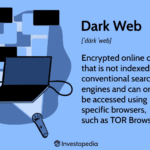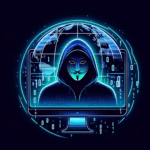The internet is like an iceberg; the part we see is the regular web we use every day, but below the surface lies the deep web and, even deeper, the darknet. Darknet sites have long been a source of fascination, intrigue, and concern, largely due to their secretive nature and association with illicit activities. But what is the darknet really, and how does it work? This guide will answer these questions, explore darknet markets, provide tips for staying safe, and discuss emerging trends shaping the future of these hidden platforms.

Understanding the Darknet Sites
What is the darknet and how does it work?
The darknet is a concealed part of the internet that is not indexed by standard search engines like Google, making it inaccessible through typical browsing methods. It operates on encrypted networks, primarily through tools like the Tor (The Onion Router) browser, which anonymizes user activity by routing traffic through multiple servers worldwide.
Unlike the common perception, not everything on the darknet is illegal or malicious. It serves as a haven for anonymity, attracting users with varying intentions—from journalists and whistleblowers operating under oppressive regimes to individuals seeking unregulated goods and services.
Common misconceptions about the darknet
There’s a tendency to equate the darknet with criminality, but that’s an oversimplification. While there are certainly darknet markets where illegal activities occur, the darknet is also used for legitimate purposes. Activists, researchers, and those concerned about privacy often utilize darknet sites to evade surveillance or censorship.
Darknet Markets An Overview
What are darknet markets?
Darknet markets are online marketplaces hosted on darknet sites where users can buy and sell various products and services. Many operate under a veil of anonymity, leveraging cryptocurrencies like Bitcoin to keep transactions untraceable.
Types of goods and services offered
Darknet markets are infamous for illegal goods such as drugs, counterfeit documents, stolen data, and hacking tools. However, they also offer legitimate items including digital art, books, and privacy-focused software. A few prominent darknet markets even provide whistleblowing platforms and forums for political dissent.
Risks associated with using darknet markets
Engaging with darknet markets comes with significant risks, including:
- Legal consequences: Activities on darknet markets often violate local and international laws, leading to potential legal repercussions.
- Scams and fraud: Since transactions rely on anonymity, buyers and sellers have limited recourse in cases of fraud.
- Cyber threats: Accessing darknet sites can expose users to malware, phishing attacks, and other cybersecurity risks.
Finding Darknet Market Links
The challenge of locating active links
Darknet markets frequently change their “.onion” addresses to evade law enforcement and cyberattacks, making it challenging to find active links. Some darknet sites rely on forums or invite-only platforms to share updated links.
Tools and resources for finding onion addresses
Several resources help users locate active darknet market links, including:
- Dedicated forums: Platforms like Dread and specialized subreddits (accessed via Tor) discuss the latest darknet markets and share active links.
- Darknet market lists: Some websites compile and regularly update lists of darknet markets, though their legitimacy may vary.
- Search engines: Engines like DuckDuckGo or specific darknet search engines like Ahmia help locate onion addresses.
Verifying the legitimacy of links
Not all darknet markets are trustworthy. Scammers and malicious actors exploit the secrecy of the darknet to target unsuspecting users. To verify a site’s legitimacy:
- Look for reviews or feedback on forums.
- Avoid markets that demand upfront payments without escrow services.
- Check for HTTPS in the URL (even on Tor) to ensure basic security.
Best Practices for Staying Safe on Darknet Sites
Using a VPN and Tor browser
Always use privacy tools when accessing darknet sites. A VPN (Virtual Private Network) adds a layer of encryption, further safeguarding your identity. Combine this with the Tor browser to maintain anonymity while navigating darknet markets.
Practicing good password hygiene
Strong, unique passwords are critical for securing darknet accounts. Consider using password managers to generate and store complex passwords securely.
Avoiding suspicious or high-risk activities
Refrain from engaging in illegal transactions or visiting questionable darknet sites. Even with anonymity tools, authorities often monitor darknet activity, posing significant risks to users involved in unlawful activities.
The Future of Darknet Markets
Emerging trends and technologies
Darknet markets are evolving alongside technology. Increased adoption of decentralized platforms, blockchain-based transactions, and enhanced encryption methods will likely shape the future of these sites. Decentralized marketplaces may reduce the reliance on centralized entities, further complicating law enforcement efforts.

Potential impact on society and law enforcement
The continuous growth of darknet activities poses ethical and practical challenges. On one hand, these markets provide opportunities for free speech and privacy. However, they also amplify issues such as cybercrime and human trafficking. Policymakers and law enforcement agencies must balance these competing interests when regulating darknet activities.
Subtly Navigating the Hidden Internet
Darknet sites and markets represent a layered and dynamic part of the internet that blends innovation, secrecy, and risk. While they offer anonymity and foster privacy-centric innovation, they remain fraught with potential dangers.
If you’re a curious explorer of internet anonymity or a professional researching this complex digital space, remember to prioritize safety and ethical considerations above all else. Staying informed and cautious is key to navigating the darknet responsibly.

